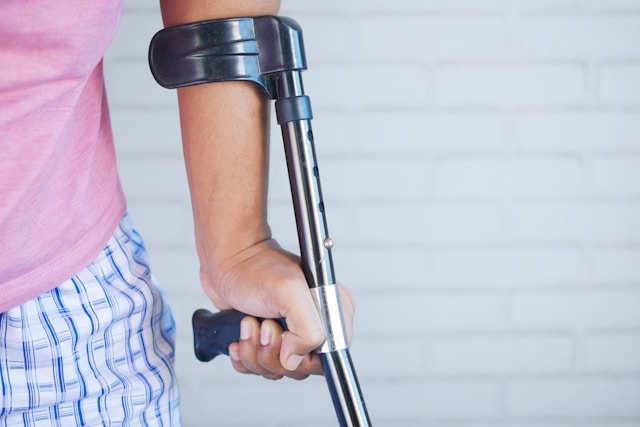Personal injury cases are inherently complex, often requiring specialized knowledge to help juries understand the nuances of a case. That’s where expert witnesses come in. Expert witnesses play a pivotal role in personal injury cases by providing objective, unbiased testimony that can clarify intricate details and influence the final outcome of the case.
What is an Expert Witness?
An expert witness is a professional who possesses specialized knowledge, skills, experience, or training in a particular field relevant to the case at hand. This person is called upon to testify because their expertise can help explain complicated aspects in a way that a judge or jury can easily understand. Unlike lay witnesses, who can only testify about what they have directly observed, expert witnesses can offer opinions based on their expertise.
Types of Expert Witnesses in Personal Injury Cases
According to the Albuquerque injury lawyers at the Fine Law firm, there are several types of expert witnesses that may be called upon in personal injury cases, depending on the specifics of the case:
- Medical Experts: Medical experts, such as doctors, nurses, and other healthcare professionals, are often called upon to testify about the nature and extent of the plaintiff’s injuries. They can explain medical procedures, the cause of injuries, and the potential long-term impact on the plaintiff’s health.
- Accident Reconstruction Specialists: These experts analyze the specifics of an accident to determine how it happened. This can include evaluating vehicle damage, skid marks, road conditions, and other physical evidence. Their input is invaluable in cases involving car accidents or other types of collisions.
- Financial Experts: Personal injury cases often involve substantial financial considerations, such as lost wages and future medical costs. Financial experts can calculate these expenses and present them in a comprehensible manner to the jury.
- Vocational Experts: Vocational experts assess the impact of an injury on a plaintiff’s ability to work. They can provide testimony on the plaintiff’s job prospects, earning potential, and career trajectory before and after the injury.
The Role of Expert Witnesses in Establishing Liability
One of the primary roles of expert witnesses in personal injury cases is to establish liability. This involves demonstrating how the defendant’s actions or negligence directly led to the plaintiff’s injuries.
Clarifying Technical Details
Expert witnesses can delve into the minutiae of how an accident occurred, offering detailed explanations that go beyond common understanding. For instance, an accident reconstruction specialist can recreate the scene of a car crash to show how the defendant’s speed, use of brakes, or failure to observe traffic signals contributed to the collision.
Connecting Actions to Consequences
Experts can also draw a direct line between the defendant’s actions and the plaintiff’s injuries. A medical expert, for instance, might link the defendant’s negligent behavior to the plaintiff’s subsequent medical condition, making it clear that the harm suffered was a direct consequence of the defendant’s actions.
Demonstrating the Extent of Damages
Beyond establishing liability, expert witnesses are crucial for illustrating the extent of the damages sustained by the plaintiff. This can involve:
- Quantifying Medical Needs: Medical experts can provide detailed testimony regarding the treatments the plaintiff has undergone, the necessity of these treatments, and any future medical care that will be required. This helps the jury understand not just the immediate impact but also the long-term health consequences for the plaintiff.
- Calculating Financial Losses: Financial experts can put a dollar amount on the financial impact of an injury. This includes not only lost wages but also potential future earnings, adjustments for inflation, and any financial losses related to diminished capacity to work.
- Explaining Emotional and Psychological Impact: Sometimes, personal injury cases involve substantial emotional and psychological distress. Mental health professionals can testify about the plaintiff’s mental state and any long-term emotional or psychological effects, thus painting a fuller picture of the damages sustained.
Enhancing Credibility and Persuasiveness
The use of expert witnesses also lends credibility and persuasiveness to a case. Jurors tend to respect and trust the opinions of individuals with specialized knowledge and experience. A well-credentialed expert who provides clear, concise, and credible testimony can significantly sway the outcome of a case.
Objective and Unbiased Testimony
Reputable expert witnesses are expected to provide objective and unbiased testimony. Their primary role is to shed light on complex aspects of the case, not to act as an advocate for one side or the other. This impartiality can greatly enhance their credibility in the eyes of the jury.
Communicating Effectively
Top-notch expert witnesses can distill complex information into digestible, relatable insights. This ability to communicate effectively ensures that jurors fully grasp the technical details, which can be a significant factor in their decision-making process.
Expert witnesses are indispensable in personal injury cases, offering specialized knowledge that helps establish liability, demonstrate damages, and enhance the overall credibility and persuasiveness of the case. Though they come with their own set of challenges, their contributions can be the deciding factor in achieving a favorable outcome. Whether by elucidating complex medical details or calculating financial losses, expert witnesses provide the clarity and insight necessary for justice to be served.



